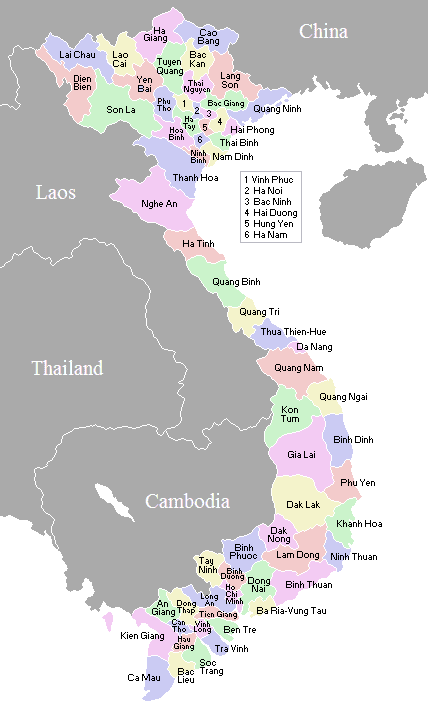Vietnam Election: improving gender equality one candidate at a time
On 23 May 2021, more than 69 million eligible voters in Vietnam went to the polls to elect the Fifteenth National Assembly and to elect deputies and People’s Council deputies at all levels. The ‘Promoting gender equality in political decision making in Vietnam’ project has been working towards empowering women to represent their electorates and increasing the representation of women in the People’s Councils at the commune, district and provincial levels – all levels of government.
The Results from the 23 May 2021 Elections
A total of 499 out of 866 candidates were elected to Vietnam’s 15th National Assembly (NA) for the 2021-2026 tenure. Ratios such as the percentage of young deputies, deputies representing ethnic minorities and re-elected deputies all met or exceeded previously set targets. Notably, the proportion of female deputies reached 30.26 per cent, the highest percentage since 1976. This is also an increase of 4 percent in comparison with the last tenure. The election results in Vietnam have shown that gender equality, especially women in politics in Vietnam, has improved dramatically.

Network of women deputies in Bac Kan Province
Results in project target areas: Hai Duong, Phu Yen and Bac Kan Provinces
The election results from the Project’s three target provinces – Hai Duong, Phu Yen and Bac Kan – indicate that the total number of elected women deputies at the provincial level is 57 women. Elected women Provincial Deputies reached 50%, 28% and 28% in Bac Kan, Hai Duong and Phu Yen respectively. In Bac Kan, the number of women deputies elected increased dramatically from 40% to 50% compared with the last tenure. Meanwhile, in Hai Duong, women’s representation increased by 2,1%.
The President of the Phu Yen Women’s Union was elected as member of the National Assembly. She is the only woman out of 6 National Assembly members from the province of Phu Yen.
In both Bac Kan and Phu Yen provinces, the elected President of the Provincial People’s Councils are women for the first time.
Project success: more women represented in government
The ‘Promoting gender equality in political decision making in Vietnam’ project has had remarkable results over the years since. In parallel with the activities to improve the quality of women deputies, there were many activities in the lead up to the election in various fields of society through marketing, campaigning, and contacting voters. Although the fourth wave of the COVID-19 pandemic happened just before the election, the project partner organisations were very quick to convert from indoor communication events to campaigning in the street to capture voters’ interest. Thereby, more people came to know more information about the election candidates.
Overview of the project:
The ‘Promoting gender equality in political decision making in Vietnam’ project commenced in 2017 with main support provided by Irish Aid and co-funded by the Australian Government Department of Foreign Affairs and Trade (DFAT) ANCP program and by Union Aid Abroad APHEDA.
The project aims to:
- Promote Gender Equality
- Increase the number of women deputies of the National Assembly and People’s Council at all levels
- Building the capacity of women deputies and women candidates
The project has established 3 clubs and 6 networks for 678 women deputies of the National Assembly and the Provincial, District and Communal levels. It has provided 38 skills-based training courses that were carried out for 873 women deputies.
Furthermore, the project advocated and networked with the provincial authorities through 6 meetings on developing intensive gender indicators into the provincial plans.
Communicating campaigning events:
- 22 workshops on gender integration and promoting gender equality to increase the rate of women candidates and deputies in the People’s Councils and the National Assembly.
- 30 training courses for 930 women candidates running for National, Provincial, District and Commune level People’s Councils and the National Assembly.
- 15 communication campaigning events were held in 3 project provinces including 3 indoor and 12 mobile events.
MORE:
- Promoting gender equality in political decision making in Vietnam, Union Aid Abroad – APHEDA, February 2018
- APHEDA People: Meet Hoang Thi Ngan from Bac Kan Women’s Union, Union Aid Abroad – APHEDA

The ‘Promoting Gender Equality in Political Decision Making’ program is supported by the Australian Government through the Australian NGO Cooperation Program (ANCP), Irish Aid and Union Aid Abroad – APHEDA members and supporters.
Local government in Vietnam
Vietnamese provinces are controlled by a People’s Council (Hội Đồng Nhân Dân), elected by the people of the province. The population of the province determines the number of councillors for each province. A People’s Committee (Uỷ Ban Nhân Dân) is appointed by the People’s Council. The Committee is the executive arm at the provincial government level and is responsible for formulating and implementing policy (kind of like a Cabinet). Provincial governments are subordinate to the central government.
